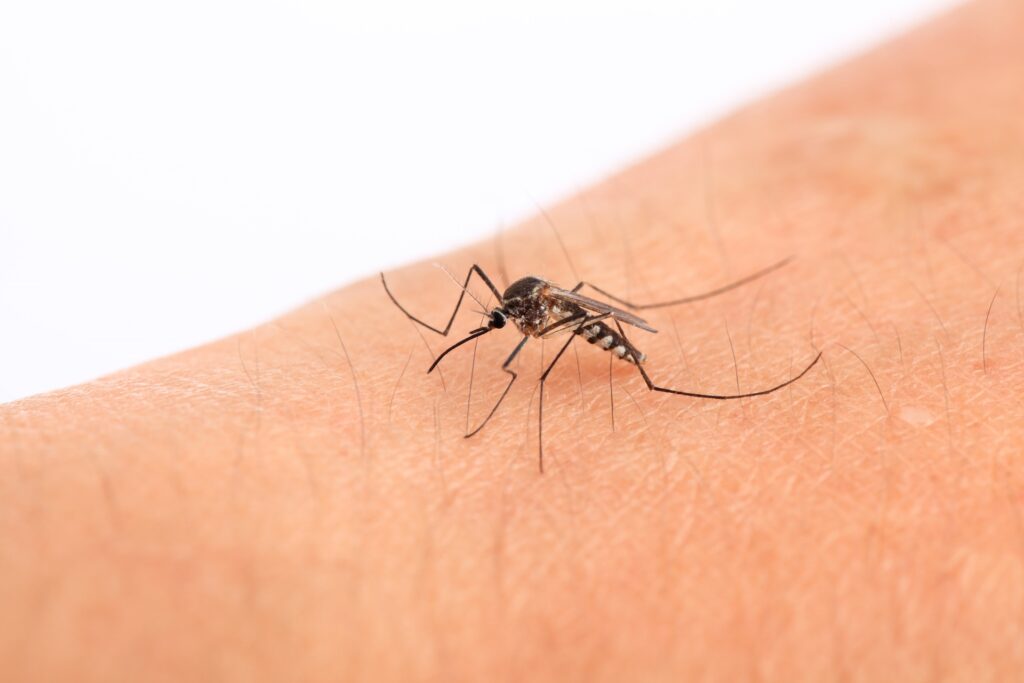Dengue fever is a serious illness caused by the dengue virus, which is transmitted through mosquito bites. This disease can affect anyone, but children are particularly vulnerable. With the rainy season and warmer months fostering mosquito breeding, it becomes crucial for parents to be aware of this potentially life-threatening condition.
Recognising the signs of dengue early can make a significant difference in the outcomes for affected children. Symptoms often appear within 4 to 10 days of being bitten by an infected mosquito. These symptoms can range from mild to severe and may include high fever, severe headache, pain behind the eyes, joint and muscle pain, rash, and mild bleeding.
Understanding how dengue spreads and what symptoms to look for can help parents act quickly if they suspect their child might be infected. Early detection and treatment are vital to prevent serious complications. This guide will help you understand how dengue spreads, the common symptoms in children, the potential dangers, and when to seek medical help.
What is Dengue and How Does it Spread?
Dengue fever is a viral illness caused by the dengue virus, which is spread by the Aedes mosquito. These mosquitoes are most active during the daytime, especially early in the morning and late in the afternoon. They thrive in tropical and subtropical regions, making dengue a common health concern in these areas.
The disease spreads when a mosquito bites a person already infected with the dengue virus. The mosquito then carries the virus and transmits it to another person through a subsequent bite. It’s important to note that dengue cannot spread directly from one person to another. The mosquito acts as the carrier, or vector, of the disease.
Preventing mosquito bites is crucial in controlling the spread of dengue. Simple preventive measures include using mosquito repellents, wearing long-sleeved clothing, and ensuring your home is fitted with screens to keep mosquitoes out. Reducing mosquito breeding sites around your home, such as stagnant water in pots and tyres, can also help minimise the risk.
Common Symptoms of Dengue in Children
Recognising the symptoms of dengue early can help in seeking timely medical care. Symptoms usually appear 4 to 10 days after being bitten by an infected mosquito. In children, the symptoms can often be mild and mistaken for other illnesses, but they can also progress to more severe forms.
Some common symptoms of dengue in children include:
- High Fever: One of the first signs of dengue is a sudden, high fever, often reaching up to 40°C (104°F).
- Severe Headache: Intense headaches, especially around the forehead, are common.
- Pain Behind the Eyes: Many children experience pain behind their eyes, making it uncomfortable to move them.
- Muscle and Joint Pain: Body aches, including severe muscle and joint pain, are often reported.
- Rash: A red rash may appear a few days after the fever starts, covering most of the body.
- Nausea and Vomiting: Children may feel nauseous and vomit frequently.
- Mild Bleeding: Symptoms can also include mild bleeding, such as nosebleeds, gum bleeding, or easy bruising.
Knowing these common symptoms helps parents identify potential dengue cases early. Early detection and supportive care can help manage symptoms and prevent complications.
Potential Complications and Dangers of Dengue
Dengue fever can progress to more severe forms, known as dengue haemorrhagic fever (DHF) and dengue shock syndrome (DSS). These conditions are particularly dangerous and require immediate medical attention.
Dengue haemorrhagic fever is characterised by damage to blood vessels, which causes bleeding from various parts of the body. Symptoms include severe abdominal pain, persistent vomiting, bleeding gums, and blood in vomit or stool. If left untreated, DHF can lead to a drop in platelet count, resulting in haemorrhagic shock.
Dengue shock syndrome is the most severe form of dengue. It occurs when severe bleeding, dehydration, and a sudden drop in blood pressure cause the body to go into shock. DSS is life-threatening and needs urgent medical care. Symptoms of DSS include cold clammy skin, a rapid but weak pulse, restlessness, and breathing difficulties.
Young children, especially infants, are more susceptible to these severe complications due to their developing immune systems. Early diagnosis and proper treatment can prevent these complications, highlighting the importance of recognising the signs and seeking help quickly.
When to Suspect Dengue in Your Child and Seek Medical Help
It’s crucial to suspect dengue early, as timely treatment can prevent the disease from becoming severe. Watch for the following signs that your child may have dengue and needs medical attention:
- High Fever: If your child has a sudden high fever lasting more than two days without any signs of improvement.
- Severe Pain: Persistent headaches, pain behind the eyes, muscle and joint pain that does not subside with regular pain relief.
- Bleeding: Any form of mild bleeding, such as nosebleeds, gum bleeding, or unusual bruising.
- Rash: A red rash that appears a few days after the fever, especially if it spreads quickly or causes severe itching.
- Vomiting: Ongoing nausea and vomiting, especially if your child is unable to keep fluids down.
- Behavioural Changes: Unusual drowsiness, irritability, or difficulty waking up are also concerning signs.
If you notice any of these symptoms, consult a paediatrician immediately. Early diagnosis through blood tests can confirm dengue and help manage the illness effectively. Don’t wait for symptoms to worsen; prompt medical attention is essential.
Conclusion
Dengue fever is a serious illness that requires immediate attention, especially in children. Understanding how dengue spreads, recognising common symptoms, being aware of potential complications, and knowing when to seek medical help can make a significant difference in your child’s health and recovery.
Stay vigilant, take preventive measures, and act quickly if you suspect dengue. At Child Specialist in Vadodara, Dr Vinit Mehta is dedicated to providing expert paediatric care. If you have concerns about dengue or any other health issues affecting your child, book a consultation with Dr Mehta. Let us help you ensure the best care for your child’s well-being.

